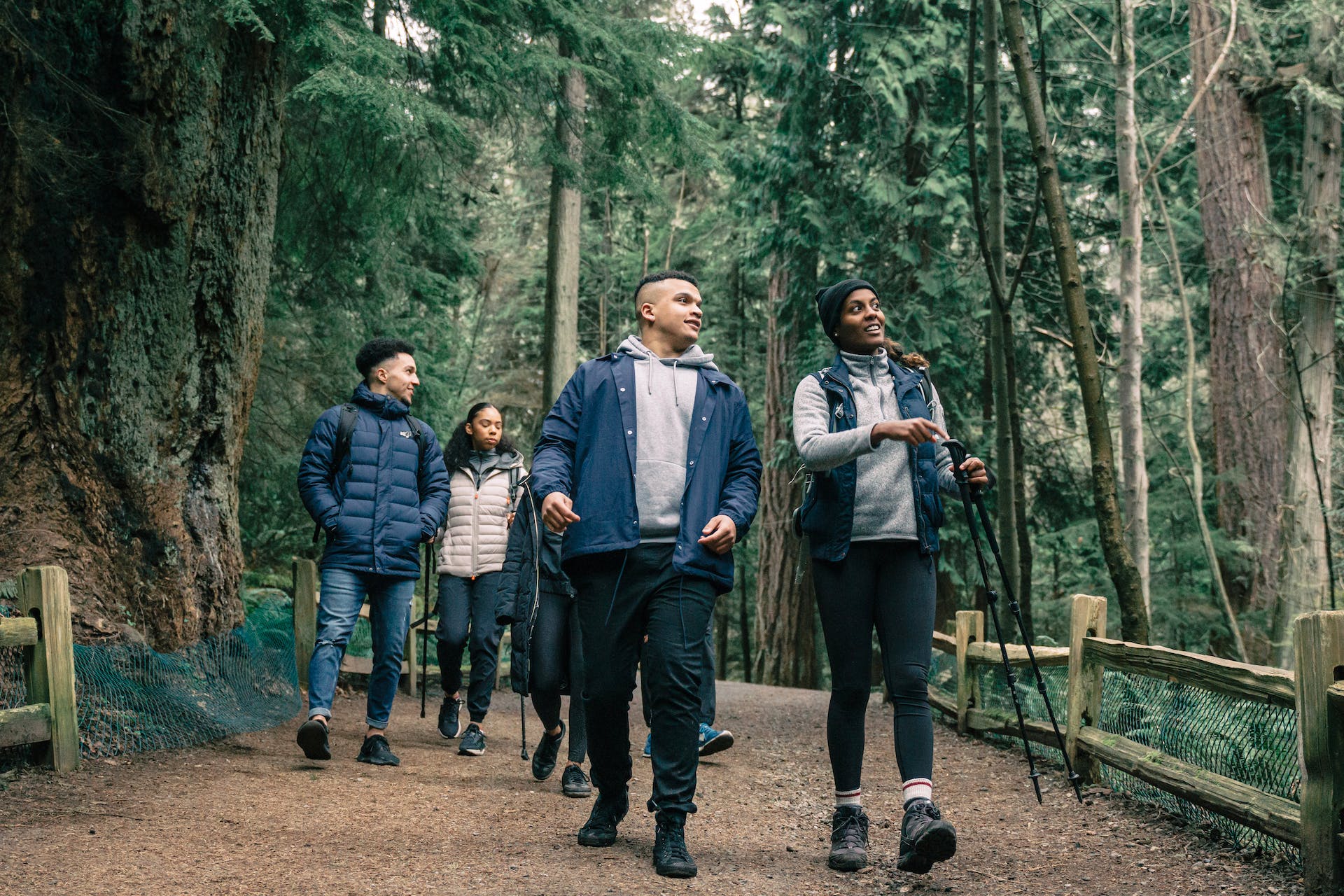If there is one resolution for me, it’s to spend more time in nature. I’ve always hiked, but it was always a means to an end. It was for exercise and not just observing the beauty around me. That is one thing that must change for me going forward. I went on my normal walk yesterday morning, and instead of just walking, I decided to sit next to the lake at my nearby park. Sitting by the lake, I just watched. I watched the trees sway in the wind, the ducks rest on the water, and the birds fly in the air. It was peaceful. A peacefulness I don’t receive all too often in a society that tells me I have to keep going.
Nature was always important to me, but for the wrong reasons. I saw the plants I bought for my environment to become peaceful. I didn’t appreciate the plants for what they were. It’s probably the reason why most of them die quickly. The only reason I would water a plant is the benefits it could give me. It’s not hard to see this relationship with the people in my life. It was purely transactional. I’ll give you water. You provide me with peace. I’m happy to have a new perspective on nature and just about anything that doesn’t have the effect of human interference.
It doesn’t change that nature has immense benefits when immersing myself in nature. Studies show that my mental well-being is linked to how close I am to green and blue (bodies of water) areas. It’s probably why housing close to nature is more expensive. Ponder on that for a minute or two. It’s also said that being in nature helps hone my positive emotions, vitality, and attention span. If one is feeling sad, a great way to remedy this is to sit under a tree or near a lake, as I did.
A New Perspective on Nature
You know what’s odd. It’s popular opinion that the COVID-19 pandemic was a bad thing. I’m starting to see another perspective on what we faced for two years. I was a big gym goer, but gyms were closed. I saw exercise as very important, and the only way I knew to get my body moving without the help of a gym was through body exercises in my apartment, playing basketball (usually by myself), and walking in a park.
The pandemic forced me to go outside more than I normally did. It was a blessing I took for granted because the exercises were my priority for getting outside. I was more concerned with the number of steps I walked than seeing the ladybug fly onto a flower or a squirrel nibble on an acorn. When the gym was deemed safe, I returned to what I knew. I never acknowledged that being outside in nature was always safe.
My objective now when going on walks is to feel my connection with the plants and animals. Humans aren’t used to it because we tend to separate ourselves from nature in a hierarchy that says I am better than the critters and the trees. I want to be better able to engage in my surroundings instead of using it as a tool. I want to observe Earth’s creations without giving them meaning. Then, I want to integrate what I’ve learned from the real world into this world full of illusions.
Questions and Responses
Spending time in nature has been shown to improve mental well-being by reducing stress, enhancing positive emotions, and boosting vitality. Nature’s calming effects can help improve focus, mood, and even attention span. Being near green spaces like forests or blue areas like lakes has been linked to increased happiness and reduced symptoms of anxiety and depression.
Previously, I saw nature as a means to an end, using it for exercise or the benefits it could provide me. Now, I’ve come to appreciate nature for what it is, without expecting anything in return. I’ve learned to sit, observe, and connect with the environment, recognizing the peace and beauty in nature without using it as a tool for personal gain.
Spending time in nature can offer a sense of peace and grounding, especially during stressful or challenging times. Simply sitting under a tree, watching animals, or listening to the wind can help shift your focus from your worries to the beauty around you, providing comfort and perspective. This practice can be particularly helpful in calming the mind and restoring emotional balance.
Appreciating nature without expecting something in return helps foster a deeper connection with the world around us. When we engage with nature transactionally, we miss out on its inherent beauty and value. By observing and appreciating nature for what it is, we can develop a sense of gratitude and humility, which enhances our overall well-being and connection to the planet.
To build a deeper connection with nature, start by slowing down and being present. Take walks without focusing on goals like exercise; instead, observe the plants, animals, and the flow of the natural environment. Spend time sitting quietly in nature, allowing yourself to appreciate its beauty without judgment or expectation. This practice will help you cultivate mindfulness and a greater sense of connection to the earth.

